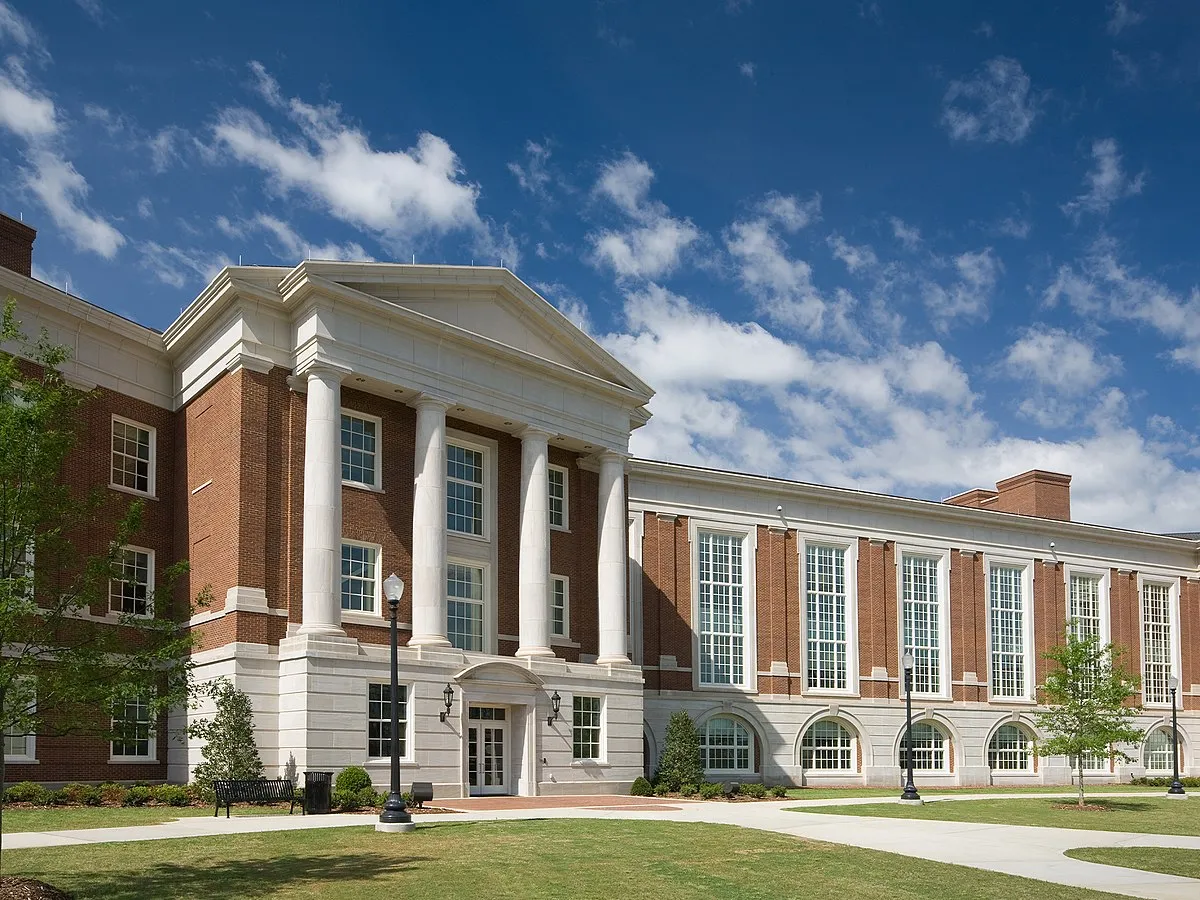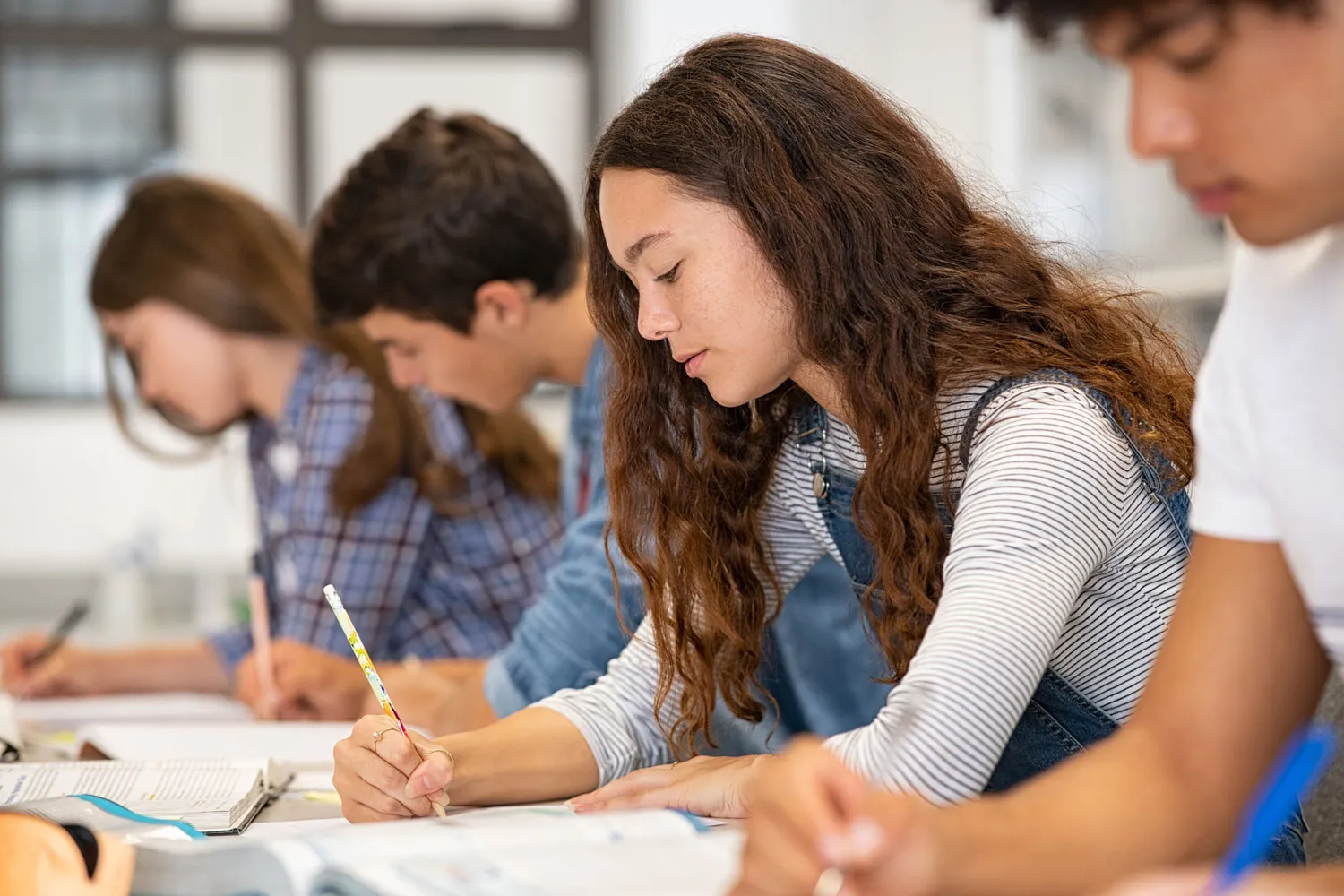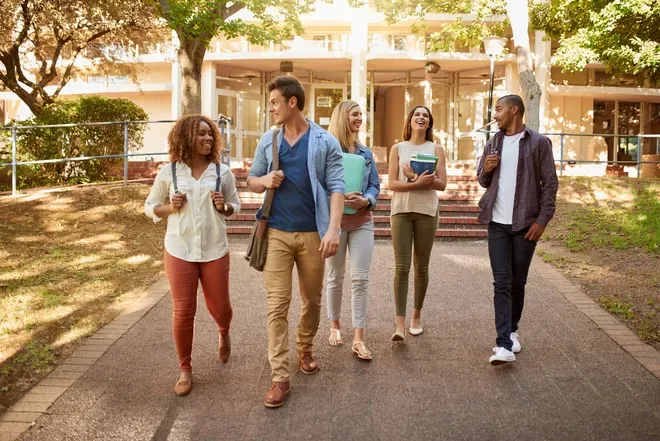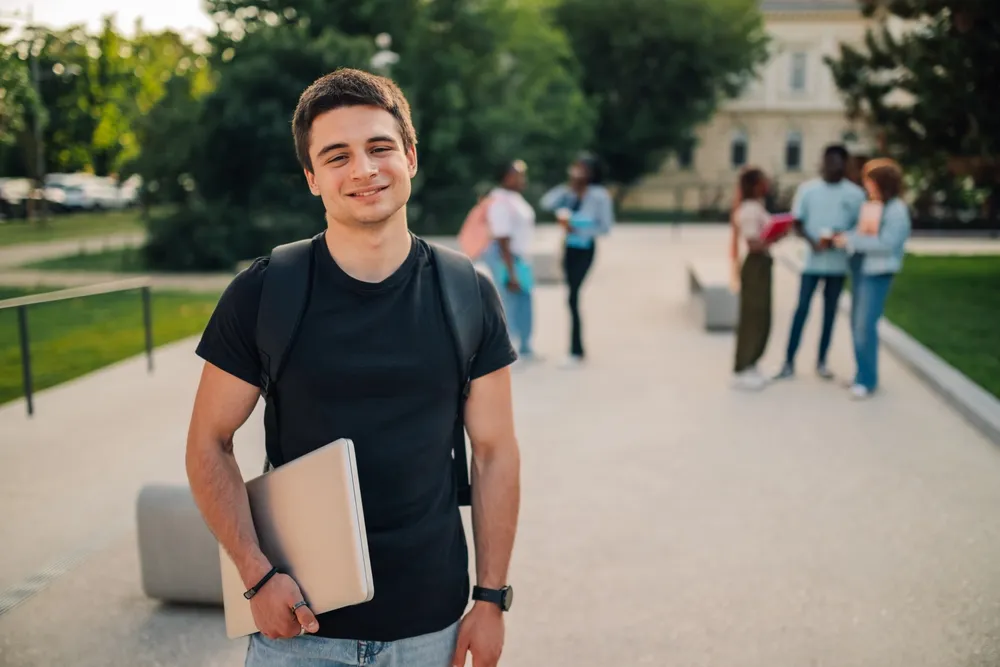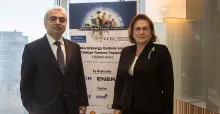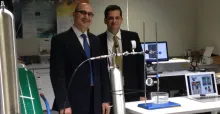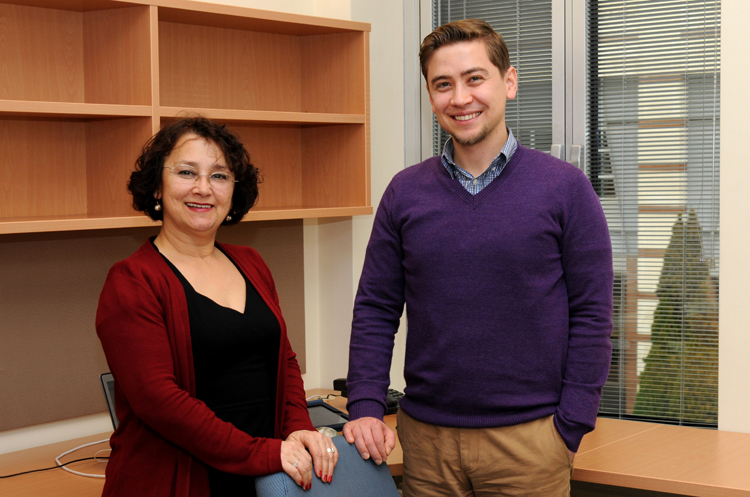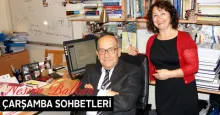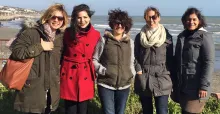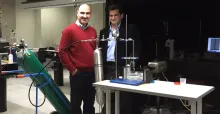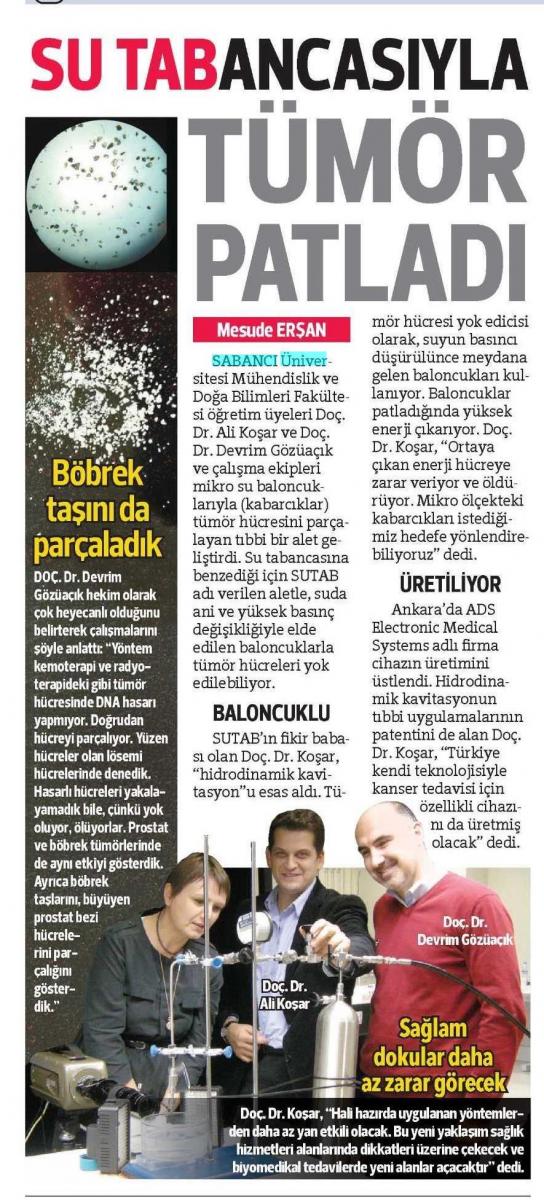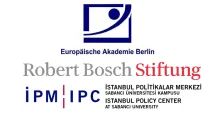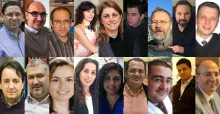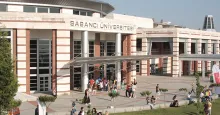Yuda Yürüm: “What makes a university professor? He is supposed to have genuine interest in his courses and students, strive to educate them and train them in the best way possible. What separates scientist from teacher is his scientific work. A good scientist must be properly involved in scientific studies and share his work with the world. You are not supposed to brood over scientific facts. He must have integrity and do everything possible to make sure that the knowledge he generates is passed on to the next generation.”

Wednesday Talks with Nesrin Balkan
Do you have brothers or sisters?
I have a brother who is 14 years older and sister who is 10 years older. After they married and left the house, I grew up like an only child. But I do have very close relations with them. They are sort of like my parents.
Almost half-parents, of course.
Brotherhood is a great feeling and we have a wonderful relationship. We meet regularly. I have wonderful nephews and nieces too, we see each other quite often. I love family gatherings, family dinners, long hours spent with family members. This is one of my greatest pleasures in life.
So you like a large family.
Yes, that is what I love the most. I am a rather domestic person, so the home is important to me.
I checked Ekşi Sözlük for some entries about you. You have responded to student criticism on Ekşi Sözlük, and in summary you say: "No university in the world gives students the right to comment on what questions will be asked in an exam and how. This is the case at Sabancı, and it is the way it should be. Students are solely responsible for studying for their courses and studying even more."
That is precisely what I told students. These were my first years at Sabancı; I gave the chemistry chapter of the Science of Nature course for 4 or 5 years, from 1999 to 2003 or 2004. I think one of the exams was particularly difficult. I somehow heard about the comments of students, and I was annoyed. You can't ask a professor why his questions were hard. At the Middle East Technical University, we had some of the most brilliant chemical engineers of Turkey who were professors. The Chemistry Department at METU is where proper chemistry education in Turkey started. They were both excellent engineers and very severe professors. We would think twice about crossing their rooms, let alone complain about exam questions. This was how we were educated. We ended up learning a lot I must say; we received an excellent education and I am proud of it. I believe that my school is the best chemical engineering school in Turkey. We would not even dare to think about telling our professors what to ask in exams - that was the culture then. This is how we were brought up.
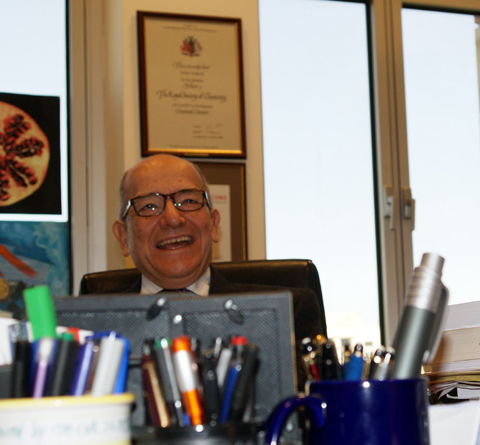
My mission has always been to teach my students what I know in the best way possible, but as I had said in that message, no one has the right to ask a professor why his questions were difficult. Those students were maybe not aware of how serious this thing is. I assumed they were acting out of childishness.
You are an uncompromising educator.
Yes, I am. This has a lot of weight for me. You must always take your job seriously and be your best in class. We must do what our mission requires us to. Being a professor is a full-time job. It is not part-time, and it is never some-time. If you are doing this job, you must do it properly and do all it takes. I've been in academia for more than 40 years - I started in '70 so it's 43 years, and I have been a professor for 41. You have a certain way of doing things, eventually.
You might refuse to compromise in this area but you do have a warm relationship with your students, right?
Of course, my door is always open to them. I was department head at Hacettepe for 6 years. Hacettepe may be a public university, but it is a modern public university. Students had to pass through two secretaries before entering my office, but my door was always open to all of them, from the youngest undergrads to doctorate students. If they had a problem, they could talk directly to me about it. And this is still the same. I have always been accessible to my students and done my best to give them something. I find it very important to have good relationships with my students, provide them with everything a professor can provide, convey my knowledge to them and make sure that they are well-prepared for the future.

If I remember correctly, you were accepted to the membership of a very reputable international academic institution in 2000, during the first academic year of the university, and I had prepared the press release for that.
Yes, I was the first person from Turkey to be granted a Fellowship at The Royal Society of Chemistry, Britain's famed international chemical society. I have other memberships too; I am a member of the American Chemical Society. They invite me to their conferences for keynote events almost every year. I will not be attending this year because I have another conference on the same dates.
You are very well known in your career and you represent Turkey on an international level.
I am only one of them; there are many great scientists and professors in Turkey who are known worldwide. I have many friends who represent Turkey most brilliantly. I strive to be one of them.
You are one of them, and you are a very humble person as well. I asked around the faculty for you, trying to get an inkling of how they see you. Two things caught my attention.
One, a member of faculty said "Yuda Bey will never ignore you if you run into him in the corridor, he always makes eye contact and greets you."
I make a point of that, and it only comes from my respect for others. I expect the same too. Some people are a little timid, others may have too many things on their mind that they don't see me in the corridor sometimes. Acknowledging a person I run into is purely out of respect, regardless of whether they are younger and older. To tell you the truth, I do expect to be treated the same way.
The second thing was a note on a bulletin board: "Yuda Yürüm himself has more publications than a faculty combined."
I don't know, I didn't see that note. You can find out anyone's number of publications; if you log on to the Web of and retrieve Sabancı professors, I come second only to Professor İsmail Çakmak. I think Professor Yaşar Gürbüz has the same number of publications as I.

So that was the ranking.
Yes, that is the only ranking I am aware of. I have always tried to do my best to elevate the reputation of the institution I work for, and this is judged in my case with my publications. If making publications adds to the prestige of the university, I believe I have done that. This is my 14th year at Sabancı, and I have had quite a few publications. Although I am proud of this fact, we must remember that there are other prolific professors here. We should not forget about them.
I must say that you are a wonderful couple. Your wife Perla is a cheerful, smiling, fascinating person.
Perla and I have done a good job of raising our sons, and now we are raising our grandson. I hope we have more grandsons and granddaughters in the future, as long as God gives us health.
Are you happy then, Yuda Bey?
I am very happy, thankfully.
In your career, in your personal life…
Leading a balanced life has its benefits to career as well. We have had our ups and downs of course, we have been through better and worse. We had difficult days. But family is very important to me; like I said before, being together as a family matters very much. I wouldn't change my sons for the world, and now that I have a grandson, I wouldn't change him for the world.

So now your sons are part of the "world?"
No, they will always be special. But the baby completely captivates you, and there is no limit to the foolishness you can do with a baby. The prim and severe Yuda Yürüm disappears and I can be as funny as I want.
So can we call being a grandfather a second chance at boyhood?
I guess so. They used to tell me that and I couldn't understand the difference until now. The difference here is that you have the loveliest creature of the world, but have no responsibility for it. You love your children as well, but you are ultimately responsible for them. With a grandchild, you love him, you hold him, you kiss him, and then you give him over to his parents for them to take care of all problems; sleep, eating…
So you get the cream off the top.
Exactly, and that is an immensely pleasurable thing. That is what is so great about the grandfather-grandson relationship. This makes Perla and I ecstatic. We can feel impatience coursing in our veins when we are going off to see our grandson.
Did you find what you were looking for in life? What were you looking for, and what did you find? Did you have any disappointments?
I have never had disappointments in my career. As an overall issue of course, we have had financial difficulties when I was in public universities. The public university has little to offer you in terms of salary, and this has implications on the family. All professors of public universities have had the same problem, of course. Otherwise, I don't think I have had a serious problem.

My job gave me everything I wanted out of life. Scientific reputation and its glory, the ability to do the job you love are very important. You would be unhappy if you did a job that you didn't enjoy. Here, I do something I really love and I am very happy. I travel abroad frequently, meeting new people or coming back together with people I know, exchanging ideas - that too is great. I must say that I am a happier person because of this job that I love.
This was a great conversation Yuda Bey, thank you.


